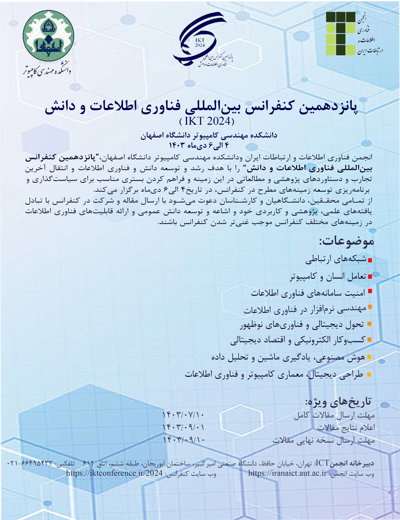0% Complete

نویسندگان :
کلمات کلیدی :
چکیده :
لیست مقالات بایگانی شده
علی کوشاری - مهدی فرتاش
Mohammad Matin Hosni - Ali Kheiri - Esmaeil Najafi
Nargess Vafaei - Dr Mohammad Reza Keyvanpour
Arya VarastehNezhad - Reza Tavasoli - Mostafa Masumi - Seyed Soroush Majd - Mehrnoush Shamsfard
دکتر راضیه شیخ پور راضیه شیخ پور -
الهام صالحی - دکتر محمدرضا کرمی ملایی - دکتر حسام عمرانپور الهام صالحی - محمدرضا کرمی ملایی - حسام عمرانپور -
Hadi Rezaeikarjani - Mojtaba Valinataj
علی خلیلی - محمد مصلح - محمد خیراندیش
فریبا اسلامی امیرآبادی - کمال میرزایی بدرآبادی
Dr Mahila Dadfarnia - Ali Alemi Matinpour - Dr Monireh Abdoos





